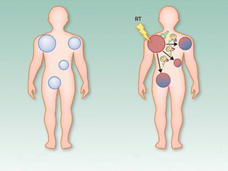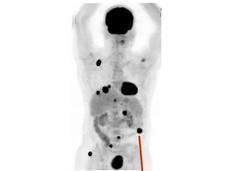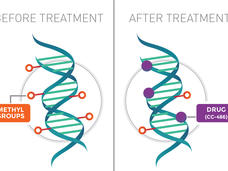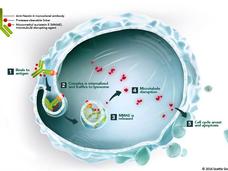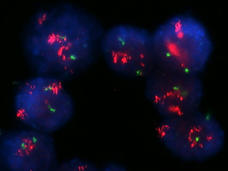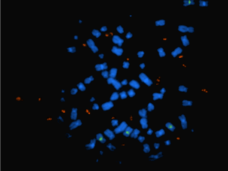January 2020 - Cancer Currents Blog
-
Off Target: Investigating the Abscopal Effect as a Treatment for Cancer
In people with cancer, the abscopal effect occurs when radiation—or another type of localized therapy—shrinks a targeted tumor but also causes untreated tumors in the body to shrink. Researchers are trying to better understand this phenomenon and take advantage of it to improve cancer therapy.
-
Changes in Metabolism Help Melanomas Spread
Melanoma cells that metastasize to other parts of the body produce high levels of a protein called MCT1, a new study in mice has found. Blocking MCT1 with an investigational drug, AZD3965, led to fewer and smaller metastatic tumors.
-
Maintenance Therapy with CC-486 Extends Survival of Adults with AML
Maintenance therapy with CC-486 extended overall survival of adults with the blood cancer acute myeloid leukemia (AML) in a large clinical trial. CC-486 is a pill form of another cancer therapy called azacitidine (Vidaza).
-
Enfortumab Vedotin Approved for Recurrent Bladder Cancer
Enfortumab vedotin-ejfv (Padcev) has been approved for people with advanced bladder cancer. FDA granted the drug accelerated approval for cancers that have progressed despite previous treatments.
-
For Metastatic HER2-Positive Breast Cancer, New Treatments Emerge
Tucatinib improved survival for women in the HER2CLIMB trial, including some whose cancer had spread to the brain. Trastuzumab deruxtecan improved survival and shrank many tumors in the DESTINY-Breast01 trial, which led to its accelerated approval.
-
Brain Cancer Cells Hijack Gene “On Switches” to Drive Tumor Growth
Glioblastoma cells sneak many copies of a key oncogene into circular pieces of DNA. In a new NCI-funded study, scientists found that the cells also slip several different genetic “on switches” into these DNA circles, helping to fuel the cancer’s growth.
